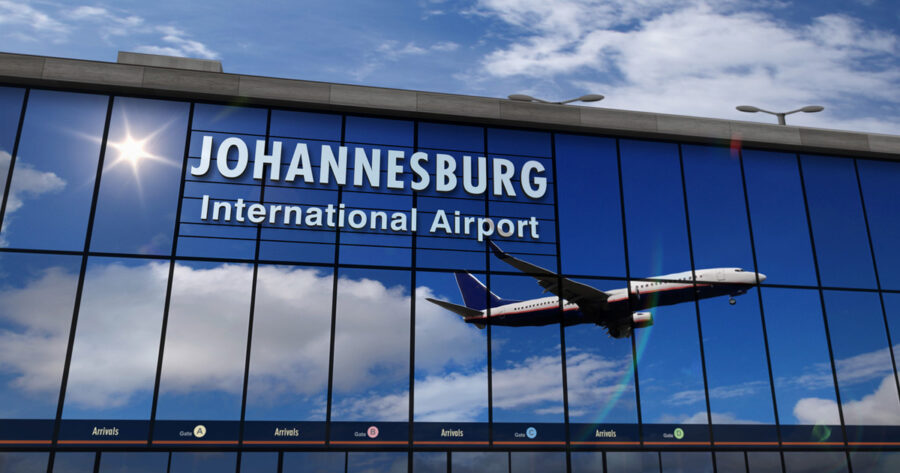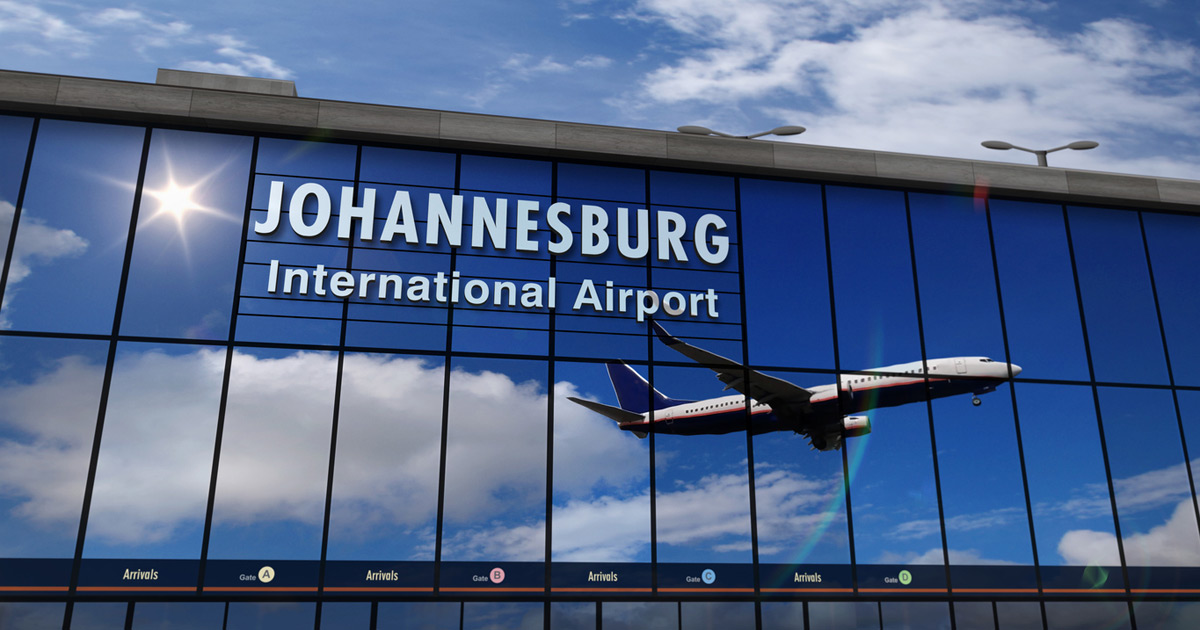
List of High Risk Countries Banned From Travel to South Africa
While travellers from all African countries are allowed in and out of SA, visitors from the countries listed below will not yet be allowed permission to travel to South Africa… but this will be revised in a couple of weeks’ time. UPDATE 11 November 2020 : ALL countries are now allowed to visit South Africa. […]

While travellers from all African countries are allowed in and out of SA, visitors from the countries listed below will not yet be allowed permission to travel to South Africa… but this will be revised in a couple of weeks’ time. UPDATE 11 November 2020 : ALL countries are now allowed to visit South Africa. There is no more ‘red list’ or ‘banned list’.
Transport Minister Fikile Mbalula said the airlines from the countries which are permitted to visit and depart from SA will be given notice by the government to travel into SA. Their citizens will be allowed to travel into SA from 01 October 2020 and re-ignite international tourism in South Africa. (Likewise South Africans will be allowed to travel to these countries.) Mbalula said he’s already heard “the Germans are coming tomorrow”. (The French, English and Greek, along with many other foreign citizens will not yet be welcome!)
All passengers will need to adhere to certain restrictions such as having proof of a negative Covid-19 test within 72 hours of their trip. (See further regulations below the list.)
South Africa has developed a risk categorisation model for different international travellers – low, medium and high risk. High risk travellers are those who come from countries with higher numbers of COVID-19 infections and reported deaths compared to South Africa, said DIRCO Minister Naledi Pandor.
“Medium risk travellers are from countries with relatively equal number of infections and death toll to South Africa and low risk travellers obviously originate from countries with lesser number of infections of COVID-19 and death toll than South Africa.
“Leisure Travellers from high risk countries will not be permitted.
“The exception will be business travellers with scarce and critical skills including diplomats, repatriated persons, investors and people participating in professional sporting and cultural events will undergo the same health protocol screenings.” (See How to apply for business travel to South Africa from a banned country.)
For those desperate to visit SA, they could fly via a non-banned country and spend 10 days there before flying to SA (see travel regulations beneath the list).
Countries will be assessed every fortnight. The following list was announced by Home Affairs Minister, Dr Aaron Motsoaledi and published on the government’s news website.
List of Countries which CANNOT visit South Africa from 01 October 2020 (Official Govt List):
-
- Albania
- Argentina
- Armenia
- Austria
- Bahrain
- Belgium
- Bolivia
- Bosnia and Herzegovina
- Brazil
- Chile
- Columbia
- Costa Rica
- Croatia
- Czech Republic
- Denmark
- Ecuador
- France
- Georgia
- Greece
- Guatemala
- Guyana
- Honduras
- Hungary
- Iceland
- India
- Iran
- Iraq
- Ireland
- Israel
- Jamaica
- Jordan
- Kuwait
- Lebanon
- Luxemburg
- Maldives
- Malta
- Mexico
- Moldova
- Montenegro
- Nepal
- Netherlands
- North Macedonia
- Oman
- Palestine
- Panama
- Paraguay
- Peru
- Portugal
- Puerto Rico
- Qatar
- Romania
- Russia
- Slovakia
- Suriname
- Switzerland
- Ukraine
- United Emirates
- United Kingdom
- USA
- Venezuela
UPDATE 20h41: The above list has been updated after the Government realised that Dr Motsoaledi had not read out the first column. The govt said: “Earlier today, a list of high risk countries was read at a Press Conference. Unfortunately this list was not exhaustive, and might also have included some countries by mistake. We are hereby releasing the whole updated list, and we heartily apologize for any confusion and any inconvenience caused by the earlier release.”
SIGN THE PETITION FOR A PASSPORT EMERGENCY EXTENSION FOR SOUTH AFRICANS ABROAD.
Regulations for Travellers to South Africa
DIRCO Minister Pandor said today: “All travellers visiting the country will be expected to abide by the regulations which include mandatory wearing of masks at all times, practising social distancing in public spaces, regular washing or sanitizing of hands and presenting a negative COVID-19 test result not older than 72 hours from the time of departure.”
Travellers are encouraged to download the COVID-Alert APP which alerts subscribers and provides relevant information if they have been in contact with any person who has tested positive for the virus.
The Minister said: “Travellers intending to visit the country will be expected to produce a PCR (polymerase chain reaction) test that is not older than 72 hours from the time of departure from the country of origin to South Africa. This test must be conducted by a certified medical practitioner and should have the name and signature of the practitioner who conducted such test.
“Upon arrival in the port of entry, the traveller will be screened for any COVID-19 symptoms or for contact with people who have been infected with the COVID-19 virus.
“Travellers will also need to provide proof of accommodation address should they need to self-quarantine at the time of arrival in the country.
“Should the traveller display any COVID-19–related symptoms or been in contact with an infected person(s), they will be expected to take a mandatory COVID-19 test. This test will be at the traveller’s cost. If the COVID-19 test comes back positive, the traveller will be subjected to a 10 day quarantine at a designated site. The accommodation at a quarantine site will be at the traveller’s cost,” she said.
If the passport of the traveller from a high risk country indicates that he/she has spent 10 days or more in a low risk country before departure, he/she will be considered to be arriving from a low risk country.
Travellers from medium and low risk countries will only be allowed into the country subject to the prevailing visa requirements.
Airlines from high risk countries are not necessarily banned, but their crew will be required to isolate in facilities at designated accommodation at the cost of their employer.
Long term visa holders who visit the country for business purposes will be allowed to travel to South Africa. These travellers will also be subject to health screenings for COVID-19 symptoms at the port of entry.
“In the interest of all citizens, and the continuing public health efforts, South Africa reserves the right to deny entry of any traveller who is travelling from a high risk country for tourism purposes,” said the Minister.
Re-opening of South African airports for travel by air
Three airports will be opened and operational for international air travel:
- OR Tambo International (in Johannesburg, Gauteng),
- Cape Town International (in Cape Town, Western Cape) and
- King Shaka International in (Durban, KwaZulu-Natal).
All travellers landing at these airports must present a PCR test which is not older than 72 hours from the time of departure from the country of origin to South Africa. Furthermore, the international travellers should possess a mandatory travel insurance which is supposed to cover the COVID-19 test and quarantine costs. All these travellers will be subjected to COVID-19 screening on arrival. Those who present COVID-19 symptoms which include elevated body temperatures and flu-like symptoms, will be required to take a COVID-19 test which should be covered by the travel insurance. Should the test results come back positive, the traveller will be subjected to mandatory quarantine, which will also be paid for by the traveller or the travel insurance.
Travellers from African Countries
To facilitate free movements of people, goods and services from South Africa, SADC and the African continent, travellers from the neighbouring countries are allowed to visit our country.
Travellers from all African countries are allowed and must possess relevant travel documents, and will also be screened for COVID-19 symptoms.
To allow ease of travel from the African countries, 18 borders will be opened. 35 border posts will continue to offer restricted services due to insufficient capacity for screening, testing and quarantine. Travellers who present themselves at borders which are unable to accommodate them will be directed to the currently operational border posts for processing.
Daily commuters who reside in cross-border areas/towns and those who are from neighbouring countries including those with relevant work permits and school children and teachers will be allowed to enter and exit the borders for work purposes. These commuters will be screened for COVI-19 symptoms and where necessary will be subjected to quarantine and isolation. Furthermore, these commuters will be expected to wear face masks, wash hands and sanitise regularly and practise social distancing measures.
Sea ports operations
To facilitate ease of transportation of goods and medicines to and from the country, ships will be allowed to dock, load and off-load cargo. Crew members from the cargo ships will be allowed to crew changes. These crew members will also be medically screened for COVID-19 symptoms. Passenger liners for luxury travel are still not allowed to dock and off-load passengers.
SIGN THE PETITION FOR A PASSPORT EMERGENCY EXTENSION FOR SOUTH AFRICANS ABROAD.
WATCH VIDEO: NCCC media briefing on the easing of international travel regulations
https://www.facebook.com/GovernmentZA/videos/623597374967793/
